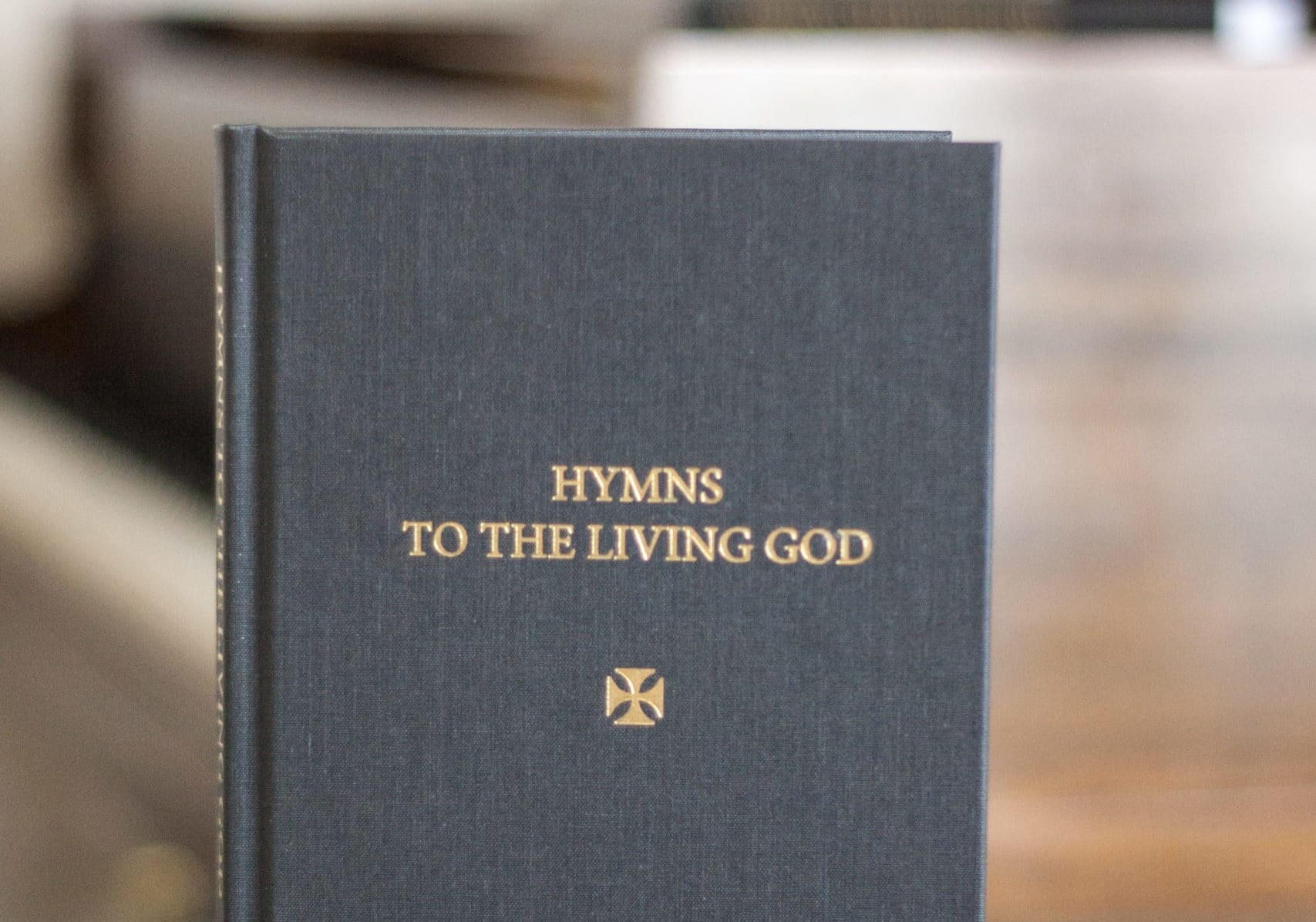The Scriptures exhort us in this way, “Let the word of Christ dwell in you richly in all wisdom; teaching and admonishing one another in psalms and hymns and spiritual songs, singing with grace in your hearts to the Lord. Several years ago I became convinced of the advantage of carefully crafted, biblical hymns (old and new).
My head went first. I reasoned in this way: If Scripture is God-breathed and doctrinal purity paramount, then it stands to reason that the songs we sing should be permeated with God’s Word and diligently curated. It became clear to me for the first time that the regulation of lyrical content is a matter of spiritual prospering or withering for families and churches.
My heart went next. As I availed myself to these cherished verses and their writers, I loved them. I loved the words because they gave voice to and nourished my soul. I loved the writers for their faithfulness, suffering, and joy in Christ. And I loved the stories of how the Lord used these hymns in the lives of his people.
Have you ever heard Isaac Watts’ hymn “The Lord Jehovah Reigns”? There was a woman named Martha Thompson who lived in London in the eighteenth century and worked as a servant in the large home of a prosperous family. One day she attended a meeting in which Charles Wesley was preaching. When the service ended, they sang Watts’ hymn, “The Lord Jehova Reigns”. The words of the song caused her heart to swell with joy and she couldn’t stop thinking about it. The line that stuck in her heart was “And will this sovereign King of glory condescend?” The next day, all day long, as she went about her chores in the large house she sang with joy.
Her master and mistress at first found it odd, and then they found it infuriating. So, they had her confined to an insane asylum. After a few weeks, Martha managed to get a letter to Charles Wesley. He used his connections to secure her release and went himself to receive her when she was discharged. He carried her by horseback to a town in the North where she started a new life and lived until her death in 1820 at the age of 88. Around her death bed, she gathered her children and grandchildren and asked them to sing her hymn, “The Lord Jehovah Reigns”, with her.
A hymn is a little sermon you carry with you and preach to yourself on the way. What is the benefit of singing hymns and spiritual songs instead of singing only the Psalms? Wouldn’t it be better if we just sang the Scriptures? No. I don’t think so. Churches benefit from the singing of faithful hymns in the same way that they benefit from a faithfully preached sermon. Choice hymns expound upon Scripture and cause us to consider, wrestle with, and meditate upon the Word of God in ways that we otherwise wouldn’t. They provide commentary to and application of Scripture. And, when chosen prayerfully and wisely by the undershepherd, they greatly enhance the preaching of the Word.
This point of view makes the singing of a song within the congregation similar to the preaching of a little sermon. I don’t mean to elevate these to the same level, but it seems to me that the ordinary grace of singing hymns in the Lord’s day gathering could use some elevating from its current state.
Allow me to make a few suggestions. First, include hymn-singing in your personal devotional time. It may seem strange to sing by yourself, but this is only because we are unaccustomed to the practice. Don’t let unfamiliarity deter you from the great help this can be to your soul. Keep a good hymnal almost as close at hand as you keep your Bible. Begin or conclude times of Scripture reading and prayer with the singing of a few stanzas of a faithful hymn.
Second, include hymn-singing in your times of Family Worship. This element of the prescribed means of worship is often the most difficult for families. You may want utilize a pre-recorded version of the hymn to sing along with until your family grows comfortable with the singing together without any aids.
Finally, cultivate a worshipful posture during hymn-singing in your local church by preparing your heart beforehand. If you have access to the hymns that will be sung the following Sunday, then spend time reading and singing them in personal devotion and family worship. Meditate upon them. Read the Scriptures that are associated with them.
The Lord has provided means of grace for his people. As we worship him through Scripture reading, praying, and singing, our faith and repentance is nourished and our souls are fortified.
Learn more about how our hymns came to be and how they have encouraged, strengthened, and comforted believers by subscribing to Ryan Bush’s podcast, Hymn Stories. Available on Apple, Spotify, and other podcast platforms.




